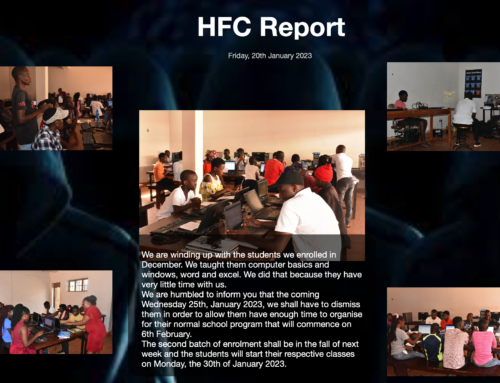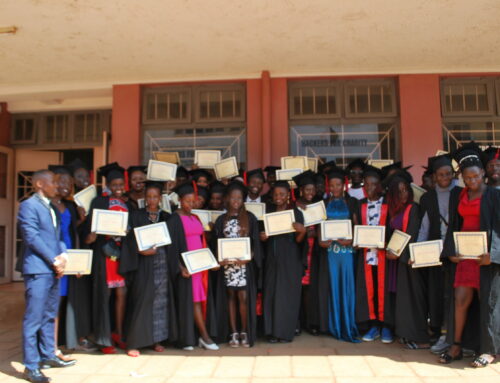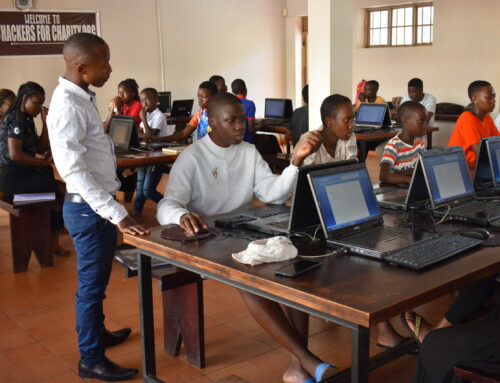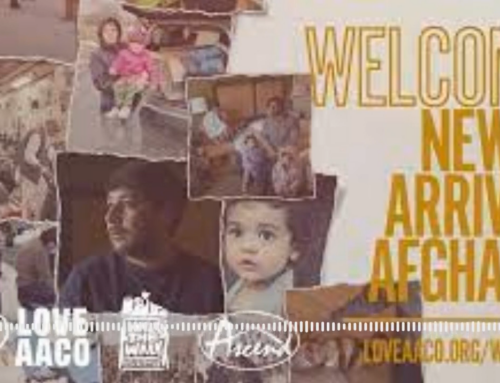I recently sent this email to Chris Simpson, who is heading up the HFC presence at Toorcon this year. It seemed relevant for the blog, so here we go. It’s long, but speaks to a lot of things that are going on here in Uganda.
————————–
I don’t want to steal your thunder, but I thought I would give an overview of the training center, our classrooms, and the various work projects we are doing.
In a nutshell:
> – Johnny’s contributions to the community
> – The good things HFC has accomplished so far:
> Training center, coffee shop
The training center is operating in a state of perpetual loss. The reason is that our prices are too low. At our current price point, we can get many people in the door, which is our goal. Additionally, we train most of our students for free as long as they come with a letter of appreciation (for the free training) from an NGO or a a government organization. As of September, every salary of the training center is paid from HFC donations. Average salary of an employee in the center is 5,000/= or about $2.50 a day… a good wage for Uganda. Plus staff gets free training. We just added Internet to the center as a way to try to generate some revenue. Most courses in our center were purchased from the US (CBT’s) saving us staff salaries and making it possible to train off a schedule, making it more convenient for students. The down side is that some students may not have strong English.
To give you an idea of the price difference, a typical Windows intro course will cost $15 and take three weeks. We charge $4 and the course takes five hours for the same training. Plus our students are hands-on. Our competitors teach via lecture, most often without computers. They charge $22.50 for Word, Excel, or PowerPoint. We charge $7.50. They charge $75 for Photoshop. We charge $4.50.
Bear in mind that a middle-class Ugandan makes about $2.50 a day. If they want training in something like Photoshop, they wold have to burn their salary for an entire month, but still not have money for food or lodging. On top of that, they would have to take weeks off of work (unpaid!) to take the course if, and only if they had already taken all the prerequisites like Typing, Windows, and most likely Office. We’re trying to change that model. The courses are affordable, flexible, and accessible. If a student only has an hour a day, they can jump in.
Our price is fixed at 1500 shillings per hour (about 75 cents, the price charged for Internet surfing all over town) regardless of the rarity or difficulty of the course. Training businesses charge a premium, taking advantage of the fact that most people can’t afford a computer and bandwidth is still expensive for the typical Ugandan, meaning they have no way to self-train. But the fiber cable is here, and bandwidth is coming, so there will be a real opportunity for people to raise their standard of living with digital skills. That’s where HFC comes in.
As for the cafe, The Keep is so much more than a coffee shop. It’s the nicest place in Jinja. We serve coffee, American food and Fast Internet to the tourists and the more affluent Ugandans. We paid for the meager start-up costs out of our family’s personal savings in order to try to sustain ourselves but also to provide a way to fund our community work. We’ve been open for three months and it’s been a rough road. For most of that time, our whole family has been at The Keep at least 12 hours a day, six days a week. (As many know, I’m off the grid because I’m so swamped. That’s part of the reason.) We’ve had theft, dishonesty, and every imaginable problem facing a start-up business. To make matters worse, we are in a developing country, so that makes everything hard. But the feedback so far is positive. We seem to be well-positioned in the market, and The Keep has become a safe, restful oasis for our customers. The miracles that made it remind us that we need to stay the course. For now though, we still operate at a loss. Staff salaries are again coming from the money I make on the far-too occasional training or speaking gig.
> How many people have you trained?
Working on those numbers..
> – The difficulties of working in Africa
1) Corruption. Everything takes a bribe. Whether you want your electric meter to “run slower,” or you want the power connecting in fewer than 2 months, you need to pay a bribe. Gone a few minutes over on your hour parking permit (even though you are parked where you aren’t supposed to be charged) you need to pay the attendand or argue with him and pay his supervisor AND him. Got a shipment coming in? Prepare to pay a bribe to everyone that touches the shipment. We’ve spent millions of shillings in “taxes” and “appreciations” because we’re too small to have a permanent shipping and clearing agent. Want to work in the country? You need a permit. Going to Immigration will always cost something. Get a lawyer to help, and you find that his fees include “appreciations”. He’ll likely give you some good advice, but them corruption steps in and every step along the way becomes complicated because the client is a mzungu (white). One of my friends walked into Immigration and the agent started sniffing the air. My friend asked what that was about and the agent says simply, “I smell money”. This was a government agent in charge of the Immigration process. The foundation of Africa is broken in so many ways that anything built here is subject to turmoil. We have to keep our wits about us and have faith. Otherwise, we’re screwed.
2) Safety. We’ve had our compound broken into four times despite two guards, three dogs and a compound fence. Once the thief cut through the fence and removed a wheel-locked bike. Past the guard, past the (barking) dogs and right through the hole. Crime is on the rise and with volatile elections coming in February, we’re in for God-knows-what. Some people tell us we need to leave the country for a month. Impossible. Too expensive. Death is a constant here. This week, our house help lost her daughter to AIDS, a brother to “sickness” and a brother to poisoning. Despite every precaution, we realize every day that without God’s provision, we’re in real trouble… it’s so easy to lose hope without something bigger than us to guide us and keep us.
3) Money. If you have it, everyone wants it. Not just because of corruption. We’ve given advances and loans to just about every employee. Some employees that are neck-deep in loans still have life problems that demand our attention. It’s impossible to stand by and watch suffering without feeling the need to help. But we have to have limits. We get random people at our gate or cafe asking for money and we have to get our staff to deal with it because if we go, we end up paying something or feeling terrible about not paying something. So for now, we offer them free training, or extra food from the cafe, or try to find some creative way to help other than cash.
4) Trust. By majority, Africans have grown up in abject poverty. Once they get “out in the world” they have learned to look out for #1 (themselves) and realize that no one will come to their rescue. If they get a job in a mzungu-owned restaurant, many will help themselves to stock or food or airtime, or whatever isn’t bolted down. Some have said this isn’t considered stealing, but that the mzungu has so much excess that they won’t miss it. If they get caught, or a theft happens, no one will admit to it. Everyone will keep their mouth shut because (ironically) they don’t want to disappoint the mzungu or “hurt the relationship”. Our most trusted employee had a very questionable past that we never looked into and eventually things started happening, and he or she left unexpectedly. Then things started coming to light that just set our hair on end. The advice we’ve been given is to not trust anyone and to lock the locks. But we are attempting another tactic: grace. We’ve told our employees that we value honesty above all else. We’ve shown grace (undeserved pardon and forgiveness) because that’s what God gives us if we ask. And we’ve seen results. One employee has made life changes that encourage us that we’re either on to something or complete idiots. I hope it’s the former, but I know one thing: I don’t want to be the typical hardened cynical ex-Pat that seems to be the norm. I’m holding out hope that somehow we can change lives for the better instead of losing touch with what makes us human.
5) Evil. I don’t know how else to say it. In the developed world, the face of evil is generally very subtle. It takes the shape of lust, greed, envy and pride. In Uganda, those exist, but they don’t seem to be as effective in terms of throwing people lives off a positive path. Here, evil is up front, looming, personal and undeniable. Demon possessions are so common that many visitors tend to think it’s just voodoo folklore stuff. It’s simply not. When rage overtakes a crowd and they shred, stone and beat a suspected thief, it’s evil. When you see it, you can’t deny it. It’s more than just “village justice”, a term that’s far too whitewashed. When a child is sacrificed, that’s unmistakable evil. It’s pervasive.
6) Scope. The problems are so big that it’s impossible to make a real dent. It takes focus. One life or one issue at a time. Operating at our level, we count on the trickle-down effect: if we help one we can make a generational change. We need to make sure we’re not trying to do too much. We try to do something small very well.
> – How important this work is and how it directly helps people
We’re offering something that’s extremely important. Most of us have reaped the benefits of exposure to computers and a digital education. We’ve seen the benefits. Here in Uganda, computers are expensive and leveraged by businesses to make a profit. With one fiber broadband cable in the country, bandwidth prices have dropped 75% in the past two years. Another fiber is on the way. We’re trying to lay the groundwork to ensure that many people are well-positioned to benefit from the influx of technology. We’re trying to prevent the problems that occurred in Nigeria, where the tech came before the training and the criminals were the first to take advantage of it.
> – How the money goes directly to help, very little overhead/admin
I stress and struggle over every dollar that’s invested by our donors. These days, I pay salaries (about $400 per month), rent on the center ($350/mo) and expenses (about $100/mo) out of HFC funds and I’m hoping to turn the corner this month and cover at least rent and expenses with funds generated from training. Beyond that, our overhead is next to nothing, meaning that the donor’s money goes right into expenses that will make the most difference including new training materials, outreach, funding of village projects, the food program in Kenya and into tools and equipment that will help generate revenue (like hardware repair toolkits, spare parts, paper and toner for our printing service, things like that).





Your response of forgiveness and grace to your troubles is so encouraging. I hope you never become hardened or cynical! Also, you can’t forget to mention all the work you have done with schools, AOET, and in Kenya. It would be cool if there was a “projects” section of your site that gives an overview of each of the different things you have going on.